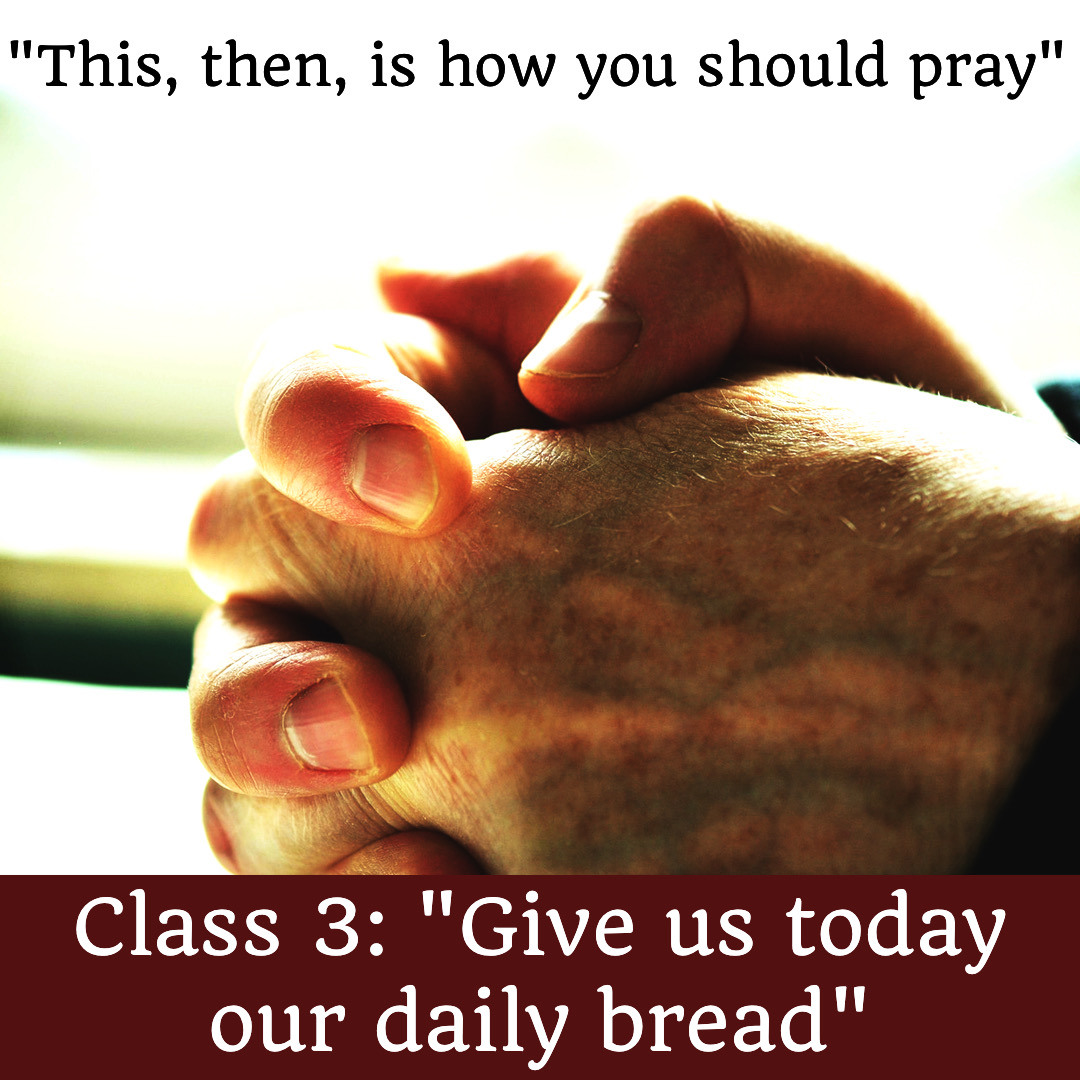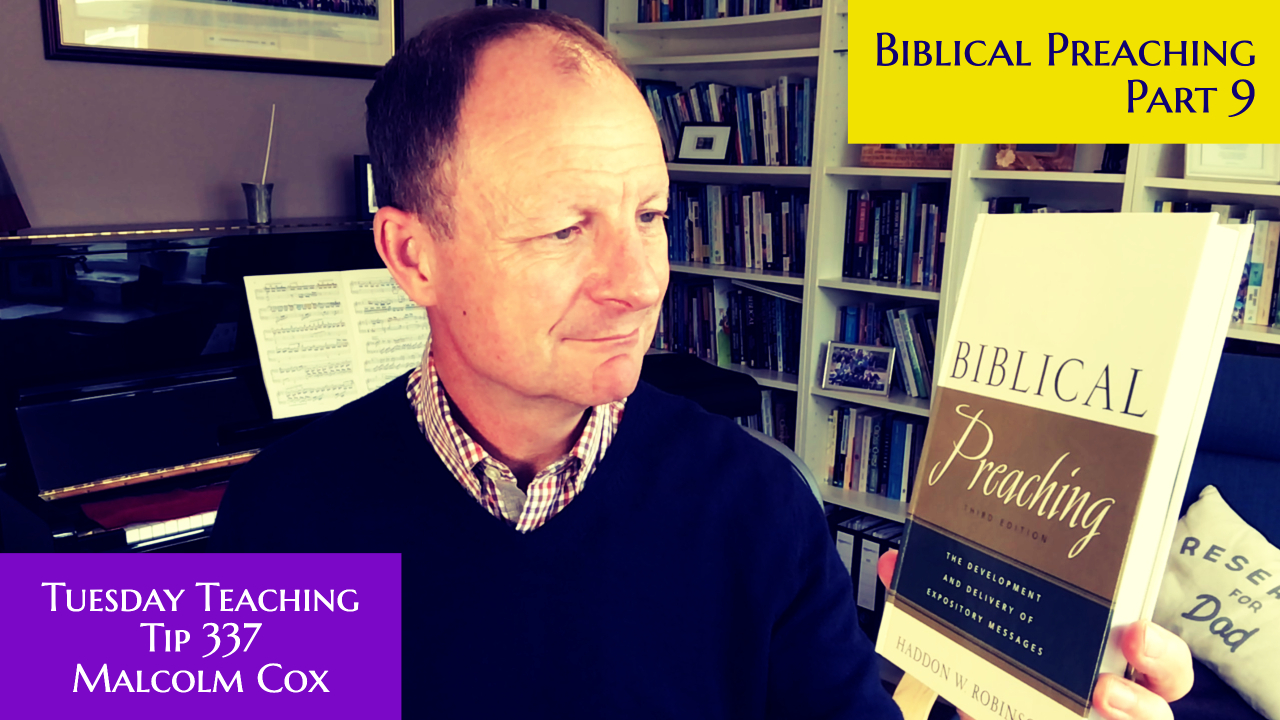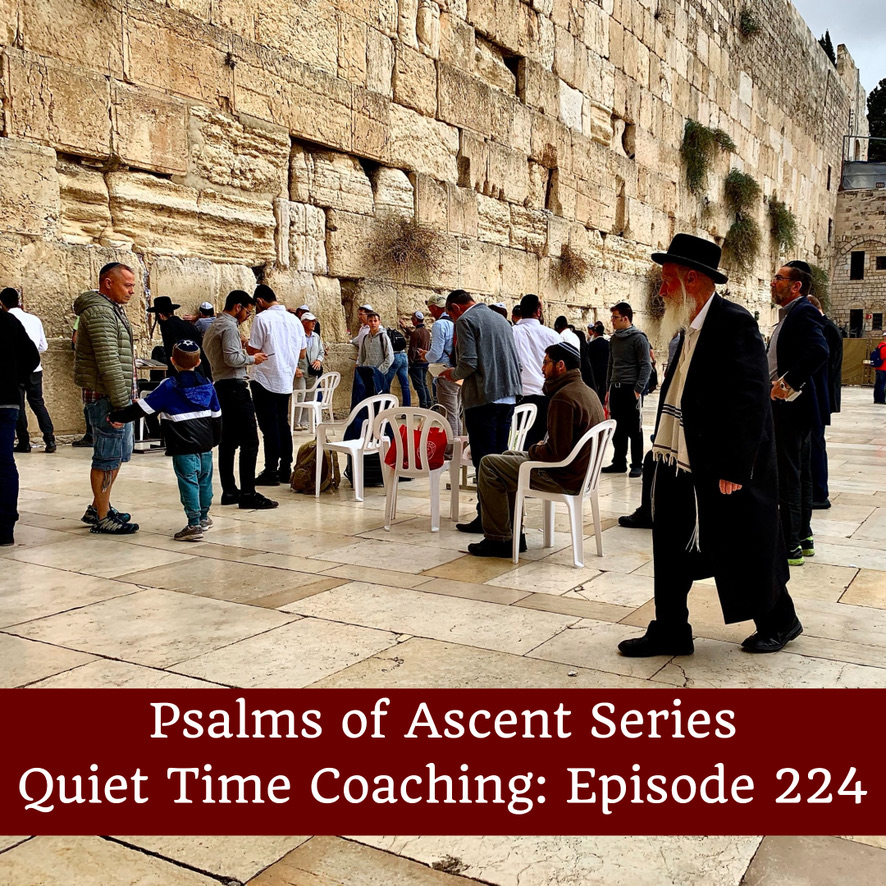Class 3 of the series: “This, then, is how you should pray”
Introduction
Last week’s class: “your kingdom come, your will be done on earth as it is in heaven”
Context of instruction
“Do not be like them, for your Father knows what you need before you ask him.” (Matthew 6:8 NIV11)
Note: This is how you should pray, not, this is what you should say.
“The three clauses of prayer for God’s glory are now balanced by three petitions for the disciples’ needs.”
1. Give
What are we praying for, when we pray asking for our daily bread?
Looking to God for provision without anxiety
““Therefore I tell you, do not worry about your life, what you will eat or drink; or about your body, what you will wear. Is not life more than food, and the body more than clothes?” (Matthew 6:25 NIV11)
Trust that he wants and delights to give
Ask with relaxed posture, not anxious demand
2. Us Our
Not only my bread. Concern for needs of others.
Social dimension
Luther sees a social dimension to this prayer as well. For all to get daily bread, there must be a thriving economy, good employment, and adjust society. Therefore, to pray “give us all the people of our land-daily bread” is to pray against “wanton exploitation” in business, trade, and Labour, which “crushes the poor and deprives them of their daily bread.”
Luther goes on to warn those involved in the injustice that the church is praying against them!
3. Daily
espousios: today, tomorrow, coming day, the day at hand.
Perhaps an eschatological hint. The bread of life is here:
“I am the bread of life. Whoever comes to me will never go hungry, and whoever believes in me will never be thirsty.” (John 6:35 NIV11)
And is coming again.
(a) Just today – manna in the wilderness.
(b) Necessary for survival – need, not want. Contentment.
Workers paid daily. Might be only enough for that day’s bread. Not enough to save. Very precarious existence.
4. Bread
Making a point about necessities rather than luxuries?
Contentment.
“Keep falsehood and lies far from me; give me neither poverty nor riches, but give me only my daily bread. Otherwise, I may have too much and disown you and say, ‘Who is the LORD?’ Or I may become poor and steal, and so dishonour the name of my God.” (Proverbs 30:8–9 NIV11)
The prayer is for our needs, not our greeds
Conclusion
Don’t forget everything you have is from God.
“Every good and perfect gift is from above, coming down from the Father of the heavenly lights, who does not change like shifting shadows.” James 1:17 NIV11
He owes us nothing. Apparent security in our society tends to engender entitlement and/or ingratitude, there must be countered by active recognition of dependence on God’s generosity.
Questions for discussion:
What stands out to you from this verse?
How might your prayer life grow because of what this verse teaches you about God, yourself and prayer?
Suggestion: Pray this verse every day between now and the next class
If you would like to share as part of the next class, please send me a short video file.
Please also send me your questions.
Please add your comments on this week’s topic. We learn best when we learn in community.
Do you have a question about teaching the Bible? Is it theological, technical, practical? Send me your questions or suggestions. Here’s the email: malcolm@malcolmcox.org.
If you’d like a copy of my free eBook on spiritual disciplines, “How God grows His people”, sign up at my website: http://www.malcolmcox.org.
Please pass the link on, subscribe, leave a review.
“Worship the LORD with gladness; come before him with joyful songs.” (Psalms 100:2 NIV11)
God bless, Malcolm
PS: You might also be interested in my book: “An elephant’s swimming pool”, a devotional look at the Gospel of John


